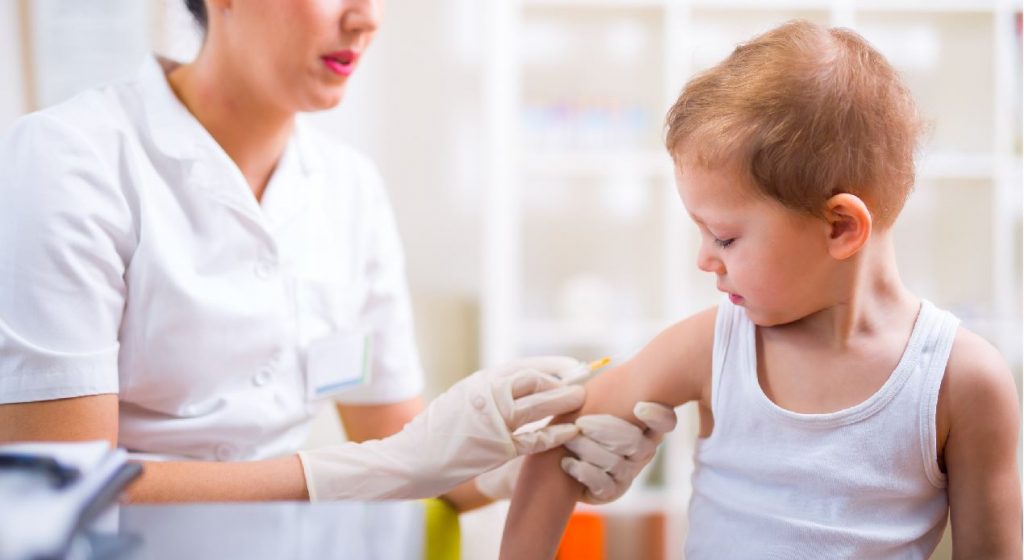
Measles is a preventable disease
This year the U.S. has seen the most measles cases since the disease was considered eliminated in our country in 2000. The Centers for Disease Control (CDC) has reported that there have been 1,022 cases in 28 states as of June 6, 2019. The CDC also states that there have been more cases this year than there have been in the past four years combined.
“As you may already know, Idaho now joins with New Mexico, Virginia, and Maine to confirm their first cases of measles in the past several weeks,” says Dr. Christopher Heatherton, family medicine specialist at Bingham Healthcare Family Medicine. “The two confirmed cases of measles have been reported in Moscow, located in the panhandle of Idaho. Measles has not been present in Idaho since 2001.”
Bingham Healthcare would like to take this opportunity to educate the public about the measles, which is a very dangerous but preventable disease—simply by ensuring that you and your loved ones are vaccinated.
WHAT IS MEASLES?
The measles is a rash-like illness and is one of the most contagious viral diseases in the world. It typically starts with a high fever (as dangerously high as 105 degrees), general feeling of discomfort and exhaustion, cough, stuffy nose, and pink eye. In most cases, two to four days after these symptoms a rash will develop. A few complications from measles may include ear infections and diarrhea as well as pneumonia and encephalitis (inflammation of the brain), which can both be fatal.
“In particular, measles can be extremely dangerous to babies, the elderly, and people with weakened immune systems,” Dr. Heatherton says.
HOW IS MEASLES CONTRACTED?
“People who have been travelling internationally, who have been to areas in the U.S. that are experiencing a measles outbreak, and who are not vaccinated most commonly contract measles,” Dr. Heatherton says.
Southeastern Idaho Public Health indicates that the measles virus is transmitted by direct, and even indirect, contact with infectious respiratory droplets spread when an infected person breathes, cough, or sneezes. Measles virus can remain infectious in the air for up to two hours after an infected person leaves an area.
HOW TO PREVENT CONTRACTING MEASLES
To end the spread of measles in Idaho and this outbreak nationwide, it’s extremely important that all adults and children are vaccinated.
“Unfortunately, there has been a lot of misinformation about vaccines,” Dr. Heatherton says. “What you should know is that vaccines are safe, highly effective, and do not cause autism—getting the measles is the greater concern. Several independent studies have distinctly proven that there is no connection between vaccines and autism.*”
(Please see links to research studies below.)
Getting a vaccine is a simple shot from your family doctor. The CDC recommends the vaccine be delivered in two doses. Kids should get their first shot between 12 and 15 months old, and their second between four and six years old.
OUR FAMILY DOCTORS ARE HERE
If you have any questions or concerns about measles, please talk to your family doctor. They can give you medical recommendations and vaccinate any family members who have yet to be vaccinated. This is one of the best times of the year to be vaccinated, especially before kids return to school in the fall.
Christopher Heatherton, DO, is a board-certified family medicine doctor and sees patients of all ages. It is also important for him to help adolescents through mild to severe cases of depression. He sees patients in Blackfoot and same day and next day appointments are available. For more information about Dr. Heatherton, please call (208) 782-2980.
In addition, Bingham Healthcare has family medicine doctors in Blackfoot, Idaho Falls, Pocatello, and Shelley. Call (208) 785-4100 to find an office near you or visit BinghamMemorial.org/Family-Medicine.
LINKS TO RESEARCH STUDIES ABOUT VACCINES NOT BEING LINKED TO AUTISM:
- Vaccines Do Not Cause Autism (CDC)
- Autism and Vaccines (Autism Science Foundation)
- Vaccines are Not Associated with Autism (US National Library of Medicine and National Institutes of Health)



